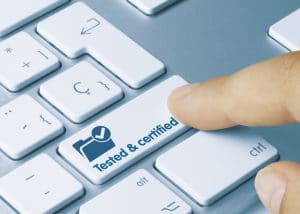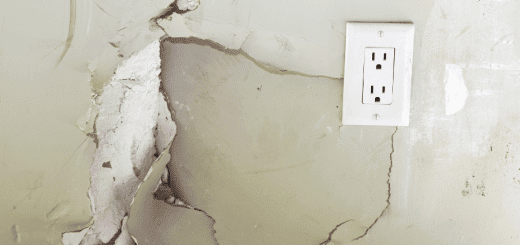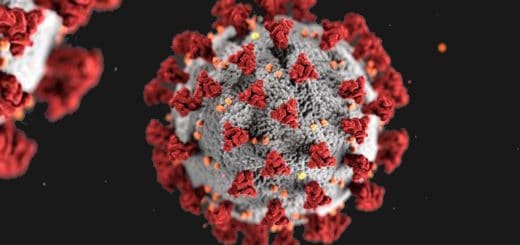What You Can Expect from IICRC Certified Professionals
What a homeowner or business manager can expect from IICRC certified professionals are industry expertise, reliability and integrity. There is no higher standard to which cleaning and restorationRestoration is the process of returning a property to its pr... More technicians are held than the IICRC certification.
Developed to ensure consistently high-quality procedures in the inspectionInspection is the careful examination and assessment of a pr... More, cleaning and restorationRestoration is the process of returning a property to its pr... More industry, IICRC certification should weigh heavily in a consumer’s choice of service providers. The benefits of hiring an IICRC certified technician or firm are abundant.
What does IICRC stand for?
IICRC officially stands for Institute of InspectionInspection is the careful examination and assessment of a pr... More, Cleaning and RestorationRestoration is the process of returning a property to its pr... More Certification. The IICRC is a nonprofit body widely recognized in the cleaning and restorationRestoration is the process of returning a property to its pr... More industry. A board of directors runs the organization, paving the way for advances and upholding industry standards.
With a headquarters based in Nevada, the nonprofit’s mission is to develop and upkeep standards across the global marketplace. Certified technicians are knowledgeable about best practices and stay up to date on advancements made in the inspectionInspection is the careful examination and assessment of a pr... More, cleaning, restorationRestoration is the process of returning a property to its pr... More and installation field.
As of 2019, the IICRC boasts 63,314 certified technicians. Similar to members who are involved in the American Bar Association, IICRC certified technicians are the most highly skilled in the industry and display a high competency in the field. The 6,835 IICRC certified firms employ highly skilled labor.
The IICRC is an accredited part of the American National Standards Institute (ANSI). The ANSI oversees thousands of guidelines for best practices in use by private business and its various sectors in the economy, from energy distribution to construction equipment to dairy production.
How do courses advance technicians’ skill levels?

The IICRC is an accredited part of the American National Standards Institute (ANSI)
Technicians with IICRC certification take multiple courses to develop expertise in the field. A certification as a Commercial DryingDrying is the process of removing moisture from materials, s... More Specialist (CDS), for instance, requires training in the administration and technical practices of dryingDrying is the process of removing moisture from materials, s... More water-damaged commercial and residential structures, fixtures and equipment.
Among the many certification courses that address water damage is the Water Damage RestorationWater damage restoration is the professional process of clea... More Technician (WRT). RestorationRestoration is the process of returning a property to its pr... More professionals who successfully pass the course learn practical remediation procedures surrounding various types of water damage, such as sewer backflows and moldMold is a type of fungus that grows in damp or humid conditi... More contaminationContamination is the presence of harmful or unwanted substan... More.
The OdorAn odor is a smell, often detectable by the human nose, whic... More Control Technician (OCT) course teaches fire and smoke damage restoration professionals how to properly handle odors that result from combustion sources. Technicians also learn to identify and address odors caused by various sources, like decomposition, moldMold is a type of fungus that grows in damp or humid conditi... More and chemical spills.
Technicians are free to take multiple courses and earn certifications in various fields. When technicians accumulate several certifications, they are eligible for the advanced statuses of IICRC Journeyman (such as Journeyman Water Restorer or Journeyman Fire & Smoke Restorer) or the IICRC Master.
What do IICRC certified technicians bring to the table?
Water damage restorationWater damage restoration is the professional process of clea... More technicians who are IICRC certified provide top-notch services. For example, IICRC certified water damage restorationWater damage restoration is the professional process of clea... More technicians fully understand the health consequences associated with water damage; and, they are knowledgeable about its ruinous effects on building structures and the environment.
The IICRC certification ensures the water damage restorationWater damage restoration is the professional process of clea... More professionals have key knowledge about chemicals and microorganisms either utilized or found during the water damage restorationWater damage restoration is the professional process of clea... More processes. He understands the difference between sanitary and unsanitary waterUnsanitary water is water contaminated with harmful microorg... More. DryingDrying is the process of removing moisture from materials, s... More science is also studied.
Structural DryingDrying is the process of removing moisture from materials, s... More Technician certification gives the professional expertise about structural dryingDrying is the process of removing moisture from materials, s... More when water damage is present. Indoor environmental quality issues and public safety are addressed in the course. Professionals receive an overview of the tools, equipment and technology necessary for water damage restorationWater damage restoration is the professional process of clea... More.
Professionals who take courses in Applied Microbial Remediation learn concepts surrounding sewageSewage is wastewater containing biological and chemical cont... More and mold remediation methods. Technicians who encounter black moldMold is a type of fungus that grows in damp or humid conditi... More or microbials especially benefit. These specialists bring their complete knowledge of safe cleaning practices to every water damage scenario.
Courses in fire and smoke damage restorationRestoration is the process of returning a property to its pr... More give technicians specialized skill in cleaning fire damaged and disaster sites. Technicians gain knowledge about how fire affects electronics, structures and artwork and learn to safely clean and handle fire damaged properties and goods.
Once technicians are IICRC certified, their learning does not stop there. Continuing education credits are mandated every four years. Similar to any other field, keeping up with advancements in the cleaning and restorationRestoration is the process of returning a property to its pr... More industry is critical to ensuring best practices are utilized when restoring a disaster site.
What type of workmanship is expected?
Property owners who enlist the services of a professional restorer have greater confidence in an IICRC certified technician. The IICRC certification is invaluable when it comes to consumer referrals. The consumer can expect that technicians with IICRC certification will deliver the highest skilled services.
Property managers, for example, rely on thorough mold remediationMold remediation is the process of identifying, removing, an... More services. When improper techniques are utilized in mold remediationMold remediation is the process of identifying, removing, an... More, serious liability issues can result. IICRC certified professionals possess the skill and training to correctly handle mold remediationMold remediation is the process of identifying, removing, an... More the first time around.
Being IICRC certified requires that the professional present integrity and honesty in all business dealings with customers. In the event of disastrous fire damage, IICRC certified firms and technicians communicate accurate assessments and information to the homeowner or property manager.
IICRC certification is an important verification tool. Home and business owners who seek high quality contractors know that turning to an IICRC certified firm or technician will result in the best quality workmanship.
Before a disaster strikes your home or commercial property, keep on hand the contact information of a trusted disaster restorationRestoration is the process of returning a property to its pr... More professional. These professionals are IICRC certified and prepared to handle with speed various disaster situations.
Comprehensive restorationRestoration is the process of returning a property to its pr... More and cleaning services are provided by IICRC certified professionals. Among the areas these professionals specialize in are water damage restoration, fire damage restorationFire damage restoration is the process of repairing and rest... More, mold remediationMold remediation is the process of identifying, removing, an... More, hoarding cleaning and biohazard and trauma scene cleaning.
Disaster restorationRestoration is the process of returning a property to its pr... More technicians have proven expertise in and dedication to the cleaning and restorationRestoration is the process of returning a property to its pr... More industry. Their professionalism is boosted with their IICRC certification status.












